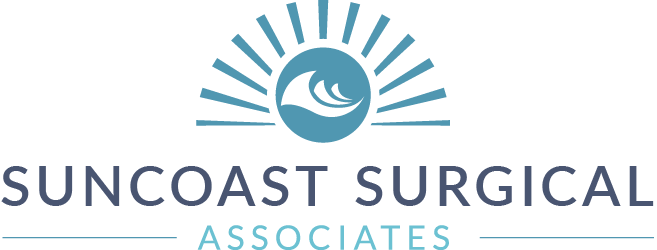Lung Cancer: Understanding the Disease and the Importance of Screening
Lung cancer remains one of the leading causes of cancer-related deaths worldwide. Its early detection and treatment are essential for improving outcomes. In this blog, we'll cover the basics of lung cancer, the importance of screening, who should get screened, and highlight the expertise offered by Suncoast Surgical Associates.
What is Lung Cancer?
Lung cancer begins when cells in the lungs grow uncontrollably, forming tumors that can spread throughout the body. The two primary types of lung cancer are:
Non-small cell lung cancer (NSCLC): Represents about 85% of cases.
Small cell lung cancer (SCLC): Accounts for about 15% and tends to spread quickly.
Risk factors include smoking, exposure to radon, asbestos, and a family history of the disease.
The Importance of Lung Cancer Screening
Early detection is crucial in the fight against lung cancer, significantly increasing the chances of successful treatment. Screening is most effective for high-risk individuals. Research shows that lung cancer screening can reduce the risk of death by up to 20% in these groups.
Who Needs Lung Cancer Screening?
The U.S. Preventive Services Task Force recommends annual lung cancer screening for:
Adults aged 50 to 80.
20 pack-year smoking history (e.g., one pack a day for 20 years).
Current or recent smokers (quit within the last 15 years).
Lung Cancer Statistics
Globally, lung cancer accounts for about 2.2 million cases annually, with an estimated 1.8 million deaths each year. Despite these numbers, early-stage lung cancers have a 5-year survival rate of over 50%, which drops dramatically if detected later.
The Benefits of Lung Cancer Screening
Early Detection: Early-stage detection significantly increases survival rates.
Mortality Reduction: Screening with low-dose CT scans can lower mortality by around 20%.
Less Invasive Treatments: Early detection allows for more localized and less aggressive treatments.
What to Expect During Lung Cancer Screening
Screening involves a non-invasive, low-dose CT scan to detect lung abnormalities. Follow-up scans or biopsies may be recommended if any suspicious findings are identified. While false positives and radiation exposure are considerations, the benefits of screening generally outweigh these risks.
Spotlight on Suncoast Surgical Associates
Suncoast Surgical Associates offers cutting-edge surgical treatments for lung cancer, focusing on minimally invasive techniques like Video-Assisted Thoracoscopic Surgery (VATS). This approach reduces recovery time while effectively treating lung cancer. Their comprehensive screening program utilizes low-dose CT scans to detect early-stage lung cancer in high-risk individuals, like long-term smokers, aiming to manage the disease when it's most treatable. The personalized care provided by their team ensures that each patient receives a tailored treatment plan that aligns with their specific needs.
Reducing Lung Cancer Risk
Quit Smoking: Quitting reduces lung cancer risk by half within ten years.
Avoid Secondhand Smoke: It increases the risk of lung cancer by 20-30%.
Radon Testing: Regularly check for radon at home, a major cause of lung cancer.
Healthy Lifestyle: A balanced diet and regular exercise can also reduce risks.
Conclusion
Lung cancer is a serious health concern, but early detection and treatment can save lives. Suncoast Surgical Associates exemplifies a commitment to providing high-quality, personalized care with advanced techniques to ensure the best outcomes for their patients. If you or someone you know falls into a high-risk category, consider talking to a healthcare provider about screening options.
